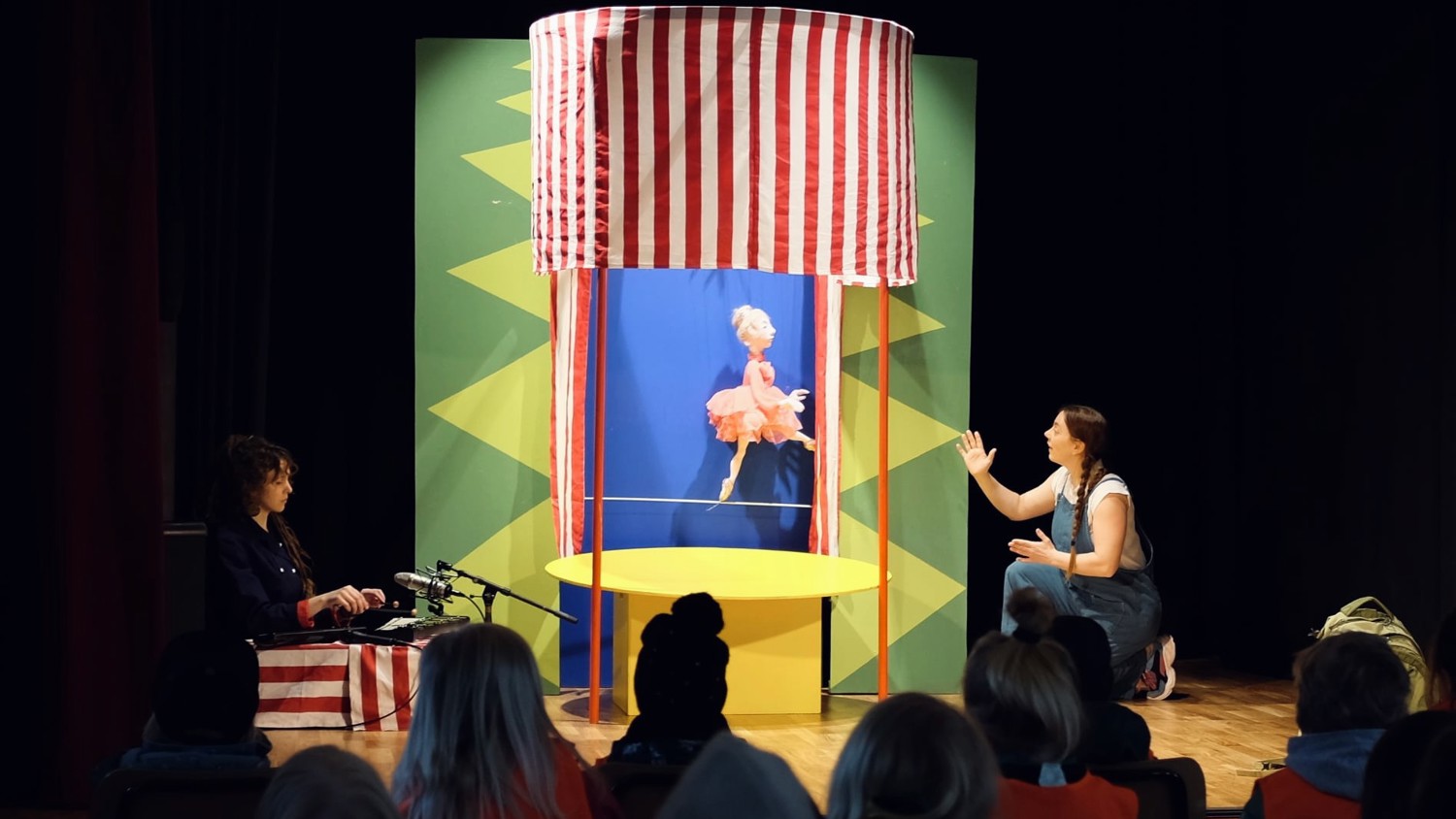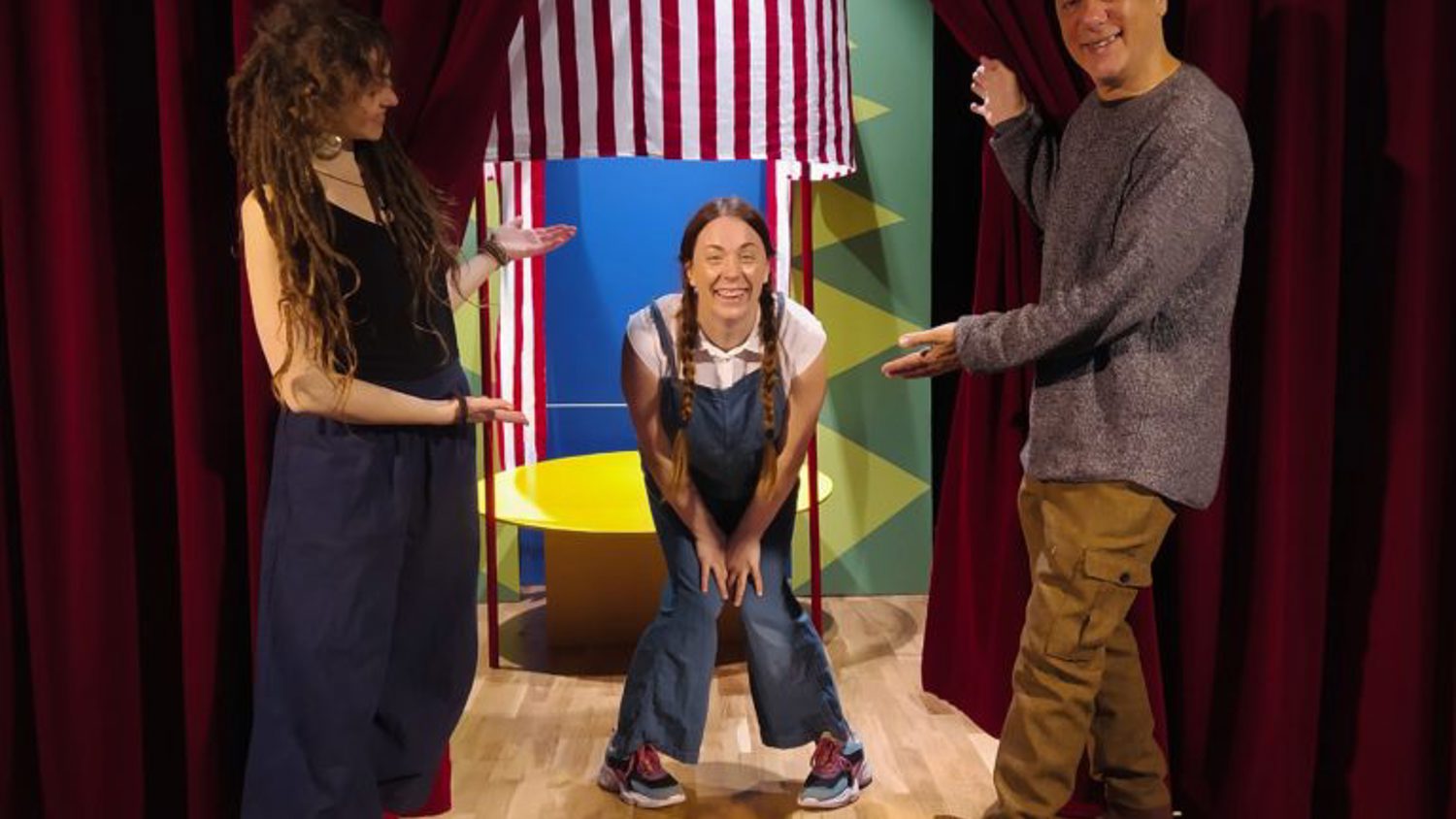
Finding harmony between sustainability and music
I have always felt a close connection to the natural world—the soil and the sky, the wisdom of trees. As a child in a small Swedish village, I spent much time in the woods. It was a safe space for me, and a place full of stories and adventures.
An academic journey into sustainability
As I grew up, I decided to move to the city. I studied sustainable development, geography, self-sufficiency, and small-scale agriculture. My knowledge about challenges like climate change and biodiversity loss grew deeper, accompanied by a growing fear for the future.
A life-changing decision
About three years ago, I made a life-changing decision and moved to the small town of Arvika in Värmland county to study music production at Ingesund Music Academy. My music education gave me all the necessary tools to develop my skills in songwriting and music production. But still, making a living with music seemed like a faraway dream. How could I possibly find my way in this complex and competitive industry?
Struggling to find a place in the music world
Part of the problem was my resistance to moving to Stockholm or another big city, where the music industry is most active. I struggled to see my place in the music industry—where could I possibly fit in? I had no wish to work with mainstream music, to compete with thousands of other music makers, trying to write the best songs and be on top of popular playlists.
Combining music with sustainability
In fact, my desire to work with sustainability had never left. I had no idea how to do this, but I felt a strong pull to connect with other artists to awaken people’s curiosity and inspire reflection on sustainable development, culture, philosophy, and the human-nature relationship. I wanted to collaborate with actors, dancers, filmmakers—any kind of storyteller.
When a chance came my way
During my first year at Ingesund Music Academy, the Interreg Sweden-Norway project Music Ecosystems Inner Scandinavia (MECO) arranged an event to inform people about how to start up a business or an organisation. This event was the last piece of inspiration I needed to put into practice an idea that had been alive in me for months.
I founded Rau-Rau Creative: Community of Transboundary Works of Art. I reached out to other music makers, illustrators, photographers, and more, building a small collection of creative people with the aim of engaging in common projects and combining our unique fields of expertise.
A few months later, I got my first paid music commission. Rau-Rau Creative created an audio-visual installation for Värmlands Museum.
The two MECO events I mentioned are only part of the support I’ve gained from the Interreg project. In general, this project has been of great importance for me, in bridging the gap between being a student and actually working with music. Through my education I learned about the music business. Through MECO I had the chance to meet the music business, through song writing camps, music conferences, networking events and more. I am truly grateful for everything the people in this project have done for me. Not only during events but also in the way they perceived and encouraged my individual longing and direction within music making.
Bridging the gap between music and sustainability
Today I still live in Värmland. I spend a lot of time in the woods. I run my own freelancing business as music producer and composer, focused on making music for performing arts and storytelling. I am also just about to release music under my music artist project Aevy Lore – where I use my artistry to reflect upon themes like sustainable development, philosophy and the nature-human relationship.
Sometimes, I am full of doubt. But most of the time, I feel like I am right on track. Getting closer and closer to working with projects I feel truly passionate about, projects with an opportunity to make a difference. Bridging the gap between my passion for music and sustainability. From a rural part of Sweden, where my creativity can flow freely. I’m truly grateful for the support I’ve received from the Interreg project MECO.
About the MECO project
The MECO project stands for Music Ecosystems Inner Scandinavia It aims to work for a strong, innovative and inclusive music industry in Värmland and Hedmark through cross-border collaboration between research, education and industry.
The main goal of the project was to investigate, innovate and optimise Inner Scandinavia’s music service ecosystem with user experience and digitisation in focus. A strong and innovation-oriented music industry creates growth and promotes the quality of life for people in Inner Scandinavia.
The project was delivered in partnership between Karlstad University, Høgskolen i Innlandet and Studiefrämjandet Örebro-Värmland, and financed by the Interreg Sweden-Norway Programme.

